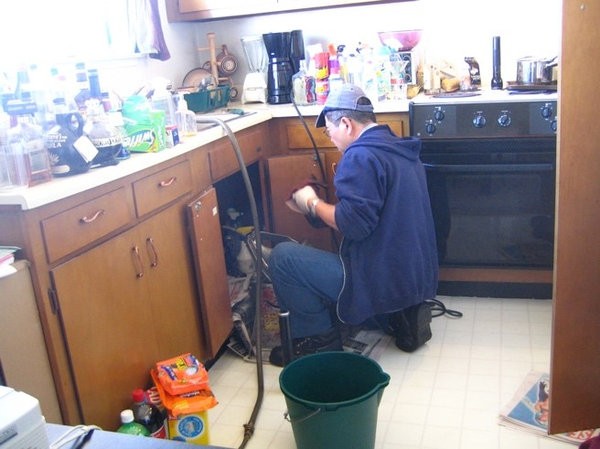Moving into a new home is an exciting prospect. At the same time, there are a number of things you need to check before you move in. For instance, plumbing is one of the things that can give you a world of trouble if you overlook the minor problems. It is only a matter of time when it grows into bigger, more expensive issues.

To avoid expensive disasters, the expert Folsom Plumbing Companies recommend you the following tips that you can do yourself.
Shut off the main valve
Before you move into a new home, it is crucial to shut off the main valve and drain. You should also check the house map to know where the sewer line access points are. This will help you perform periodic cleaning. However, you don’t need to worry about this if you are moving into an apartment or a condo as they do not have their dedicated valves.
Beware of puncturing pipes
If you are planning to drill holes into your walls or ceiling, then be sure to first check the drainage pipes and supply pipes behind your work space. Not doing so may lead you to accidentally puncture them. You can invest in a stud finder that doesn’t cost a lot but works wonders in determining the location of a pipe. You can also consider buying an endoscopic walls that can be used to see inside the walls.
Do not flush un-flushable items
A toilet bowl is not a trash can. As such, they shouldn’t be used to flush down things except a toilet paper as it can clog up your drain. You should also avoid flushing the “flushable” wipes as that too can clog the drainage system.
Avoid putting garbage down the drain
There are things that you shouldn’t put in your garbage disposal, such as coffee grounds, bacon grease, vegetable peeling, bacon grease, or starchy foods like potato and rice. These foods will almost always clog your pipes. You should also read up the manufacturer’s guidelines on garbage disposal to know exactly what the system can handle.
Buy a plunger
A high quality plunger can really work wonders in unclogging toilets, sinks, and drains. If you are thinking of cleaning the sink traps, then you must consider using the plunger to suck out all the water before you remove the trap. The task will be a lot less messy if you follow this step first.
Unclog your sink with a vacuum cleaner
If you are trying to remove a clog caused by a small, hard object, you can consider using a wet-dry vacuum cleaner. It is very effective in dislodging the clogged object. A plunger, on the other hand, will only push the object deeper inside the drain, making it difficult to remove.
Pay attention to the leaks
When you hear that steady drip sound of a fixture, it is a sign of leakage. In fact, a leaky faucet wastes as much as 8 gallons of water and a running toilet can waste up to 200 gallons! This is the reason it is crucial to fix the leaks, not only to save money on water but also save a precious resource from getting wasted.
Do not over-tighten fixtures
One of the most common DIY plumbing mistakes is over-tightening of fittings and fixtures. Doing that can damage the bolts and screws. Just use the basic hand-tightening technique to do the job.
Learn to use the plumber’s tape
Plumber’s tape, also known as Teflon tape, is a plumbing tool that is used as a preventive measure against leaks. It can be used to seal the pipe threads and prevent leaks around joints as well as well as fittings. You can wrap the tape three times around the pipe thread before sealing. It is also important to note that when you are buying tape, white one is to be used for plumbing projects whereas the yellow one is meant for gas line connections. Keep that in mind when you go hardware shopping.
Learn to check for leaks
Be sure to check for leaks after you conclude a plumbing project. Run the water through the system and then open and close the valves as well as drains. It is not just you who can miss a small leak, even professional plumbers may sometime fail to notice it. This is the reason you must learn to identify the leak and reseal it to prevent any expensive damages.
While these are some things you can handle on your own, but not every plumbing issue can be sorted as a DIY project. Therefore, you must always rely on the expertise of professional plumbers if you are unable to understand the source of the problem.